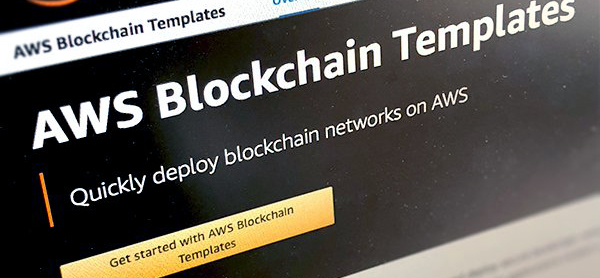As more and more innovative brands and retailers are discovering, blockchain technology has some very interesting opportunities in store for retail. Not only could it be a valuable aid for retailers, it could actually replace retailers as well.
Transparent chain: follow the chicken to your plate
A product’s origin is easily traced thanks to blockchain: French supermarket group Carrefour is creating an entirely transparent supply chain for several of its product categories thanks to the blockchain technology. Every step of the supply chain, from its manufacturing to its processing conditions, is captured in a decentralized database and this allows customers to trace the entire route a product has followed onto their plate. One such example is that they can already trace Carrefour’s private label poultry meat’s origins.
Food manufacturers Dole, Unilever, Nestlé and others are pursuing the same goal and that is why they are partnering with IBM to better map and track a product’s movement in the supply chain, thanks to blockchain technology. Walmart also joined the IBM system and said in June 2017 that it was now able to track a mango’s route in 2.2 days instead of 7 days.[i]
Alibaba is also known to invest a lot in blockchain technology, particularly to combat counterfeit items. Thanks to the blockchain, no single individual person or supplier can adjust or create fake results, creating a fraud-proof system.
Take out the supermarket: from manufacturer straight to consumer
Russian start-up INS Ecosystem has plans to cut out the supermarket as the expensive middle man between manufacturer and consumer. Founders Peter Fedchenkov and Dmitry Zhulin, who also founded grocery delivery service Instamart, believe that their online platform could reduce grocery prices up to 30 %.
FMCG-giants Unilever, Mars, Friesland Campina and Reckitt Benckiser have all signed collaboration deals, just like pharma manufacturers and more local food and non-food brands. Whether it is Durex or Gaviscon, they all believe in INS’ decentralized e-commerce platform. Seven out of the twenty largest FMCG manufacturers have already expressed an interest to join the platform, the founders say.
The short chain is not a novelty, INS Ecosystem admits, but the blockchain has enabled its application more than ever. Founder Peter Fedchenkov says the decentralized data system allows for safe, efficient and cheap trading between the manufacturer and the consumer, eliminating the supermarket as the go-between.
Why use blockchain? The technology, alongside smart contracts, allow for a new generation of platforms, according to the founders. It allows for more transparency in the supply chain and the use of its own virtual currency, the INS token, gives shoppers their own loyalty and reward program as well.
Even though customers can use other currencies as well, the marketing campaigns and the loyalty programs will all focus on the INS token. Compare it to an airline’s “air miles”, but thanks to smart contracts in the blockchain (programs that automatically hands out tokens when required), this system is much more advanced, is cheaper to use and more personalized.
INS only demands a 1 % fee on every transaction. The reason why the fee is so low, is because the system operates as independently and cheaply as possible. INS’ intervention as platform aggregator is therefore restricted to an absolute minimum, thanks to the decentralized blockchain technology.
Moscow and Amsterdam are the first to enjoy this new system: Moscow is the home town of the crypto enterprise and Amsterdam is because of its deal with PostNL, the Dutch postal service that will handle logistics and shipments in the Benelux as a third party. INS Ecosystem highly values the “last mile” partner, because that is the actual touch point between the digital and physical world, between the platform and the consumer.
That same PostNL, however, is already running its own platform-based grocery service called Stockon. The service consists of automatic biweekly grocery deliveries, based on an adaptable yet fixed personal grocery list of staple goods. Just like with INS Ecosystem, none of the products on supply are owned by Stockon. They are instead given in consignment by producers and private label manufacturers, among which private label brand Boni from the Belgian supermarket and foodservice group Colruyt. For Colruyt Group, it’s their first experience with a direct-to-consumer platform. Blockchain would be a logical next step for the Stockon platform as well.
Amazon invests in crypto, could become a bank
Why hasn’t Amazon taken up this technology yet? Rest assured, they are undoubtedly working on it. Amazon has already registered several domains referring to crypto currencies, possibly as a pre-emptive measure, but most likely because it has plans of its own. Blockchain could turn Amazon into an even more powerful ecosystem, just like INS Ecosystem is planning.
Its very own crypto currency, or virtual currency, would eliminate all of the possible exchange rate issues on the global market. It would need a bank or external financing options, because it can create capital rounds for the currency itself an use it as an investor tool. Blockchain is designed to have no regulatory third party that can or needs to intervene. Cryptocurrencies are in fact deliberate boycotts of the traditional bank.
Moreover, Amazon could actually become a bank itself: more than half of surveyed Amazon shoppers (LendEDU 2018) would consider an Amazon coin, nearly 45 % would open an account with the online giant. About 38 % says it has an equal amount of trust in Amazon as in a bank and nearly 30 % would even consider a mortgage at Amazon.[ii]
It would also considerably increase Amazon’s power, considering it would not need anyone aside from a delivery service: Amazon could go from manufacturer to consumer, eliminating banks, wholesalers and supermarkets. If the rumours prove to be true that Amazon is looking to acquire global logistical supplier DHL, the Seattle-based retail giant will own every piece of the chain.
The entire chain, without interruption
In the long run, Amazon would not even need the many retailers and partners on its Marketplace anymore, because it would be able to present a limitless amount of products straight from the blockchain, from the manufacturer to the consumer. An enormous advantage of a blockchain-powered online platform is that it can work from a pull model, according to INS Ecosystem’s founders.
It removes boundaries of communication between consumers and manufacturers, which is why the consumer can indicate what he needs. Retailers will no longer decide the product range, because the platforms wants to give consumers direct access to the manufacturers’ entire product range. There are no practical limitations because the short chain does not result in expensive stocks and no time or resources are wasted in the supply chain.
The advantages for a manufacturer is the access to data straight from the consumer instead of through the retailer, lower retail channel costs and ne need to take a retail margin into account. INS also points out that a blockchain platform will bring more smaller brands to the forefront, compared to their struggle to occupy shelves in stores. Amazon would most likely bring its own brands to the limelight, which would give it one straight line to the consumer, without interruption.
Millions of Amazon-like stores in the blockchain?
There has been no official confirmation that Amazon is working on its own crypto platform, but it is without a shadow of doubt thinking about it: especially since, aside from Russian INS Ecosystem, the mysterious Bezop crypto currency has also popped up.
The American blockchain entrepreneurs behind Bezop did not look to Amazon founder Jeff Bezos for inspiration by chance: they want to use blockchain to create a worldwide marketplace where every retailer and manufacturer can offer goods to the consumer without the need to start their own web shop, the need to invest in a cash register or payment system (crypto currency handles everything) and without a third party (like Amazon, Alibaba or Zalando) regulating the platform and walking away with data or margins.
Bezop considers itself to be a “decentralized peer-to-peer ecommerce order management and processing system, an autonomous buyer-seller protection service, and a simple value added tax (VAT) collection system – all powered by smart contracts and built on a decentralized blockchain network”. “Build stunning Amazon-like stores for millions of businesses” is the company’s slogan.
Even though Bezop is still in its infancy and is regularly criticized in the crypto community, the idea is valid, and surely giants like Amazon and Alibaba must be aware of that too. If Amazon invests in technology, then blockchain is the next logical step. It could be the end of the current marketplace platforms with retailers as external suppliers. Will blockchain kill the platforms?
[i] https://www.reuters.com/article/us-ibm-retailers-blockchain/nestle-unilever-tyson-and-others-team-with-ibm-on-blockchain-idUSKCN1B21B1
[ii] https://lendedu.com/blog/amazon-virtual-currency-banking-insurance/








